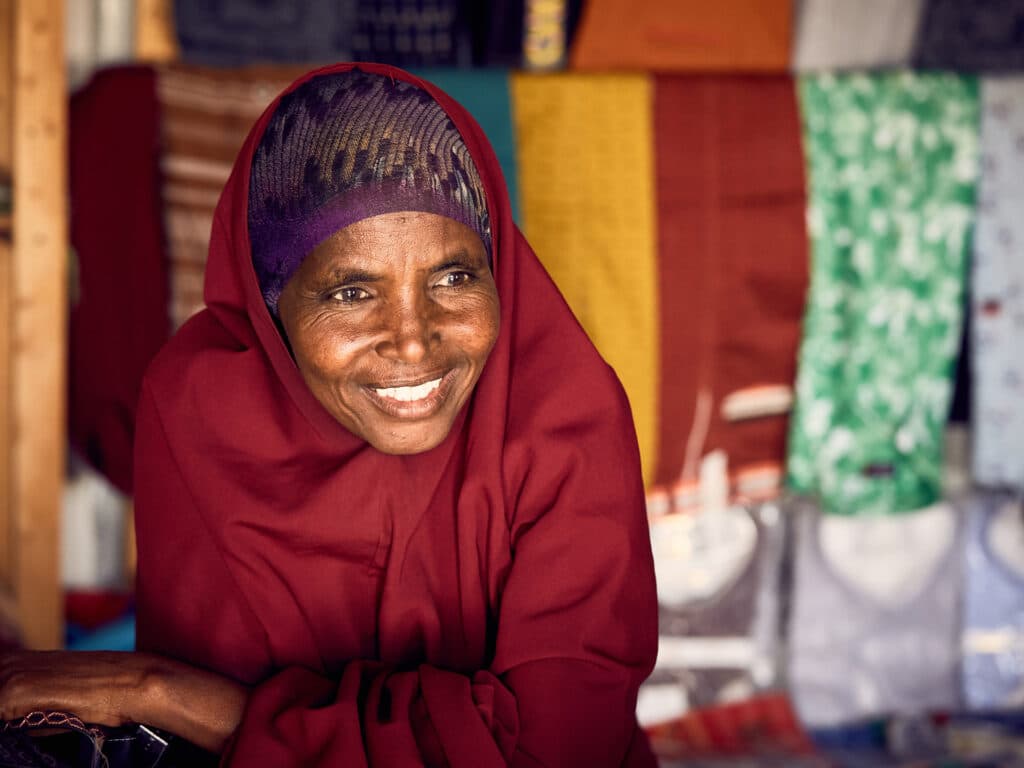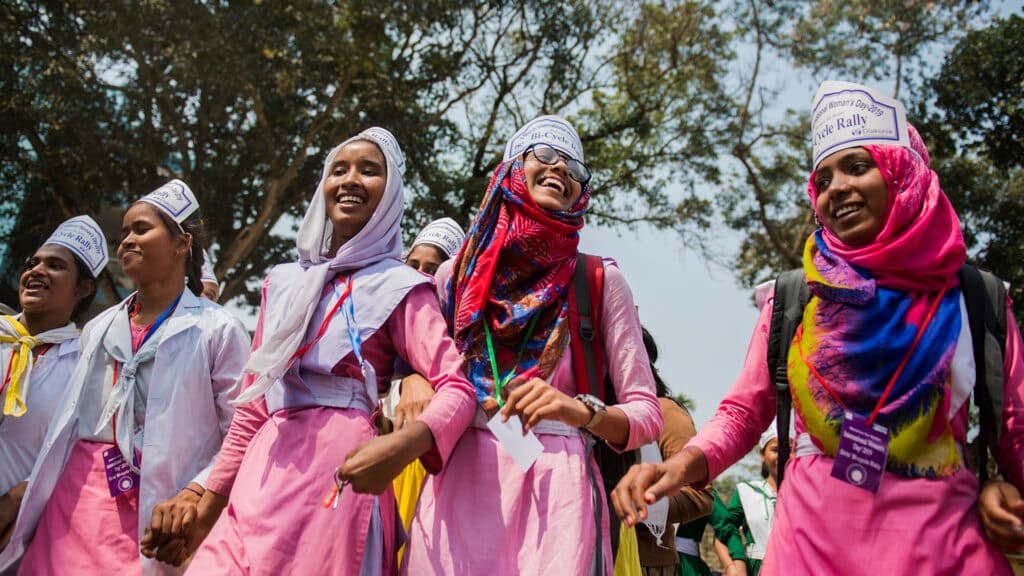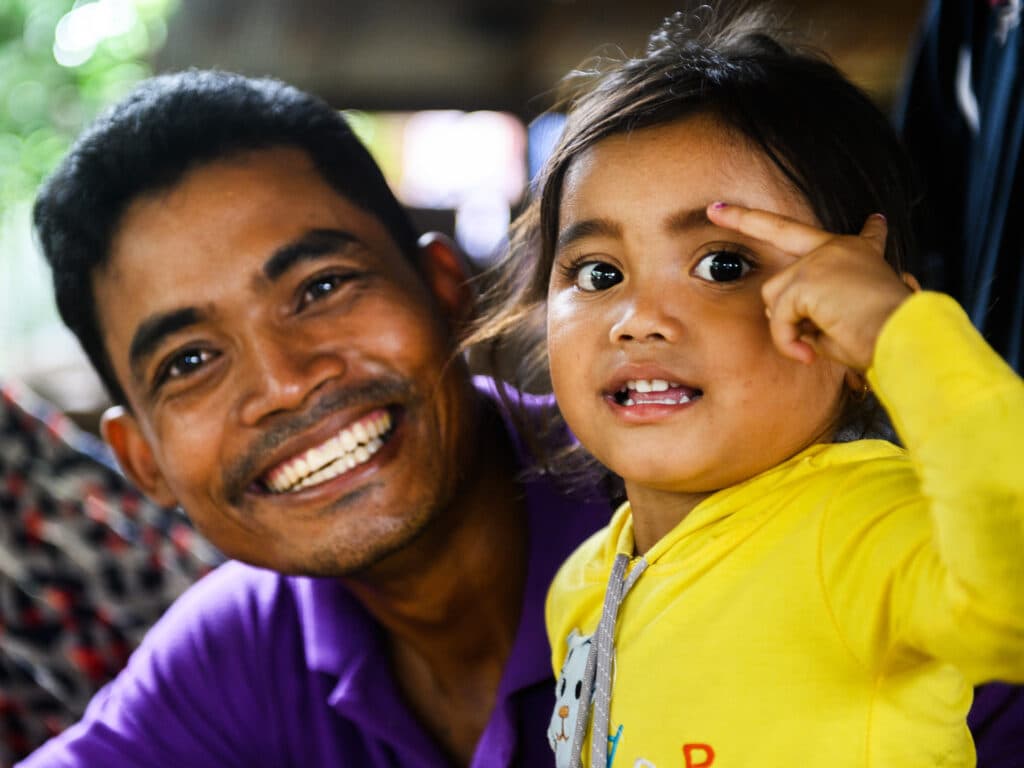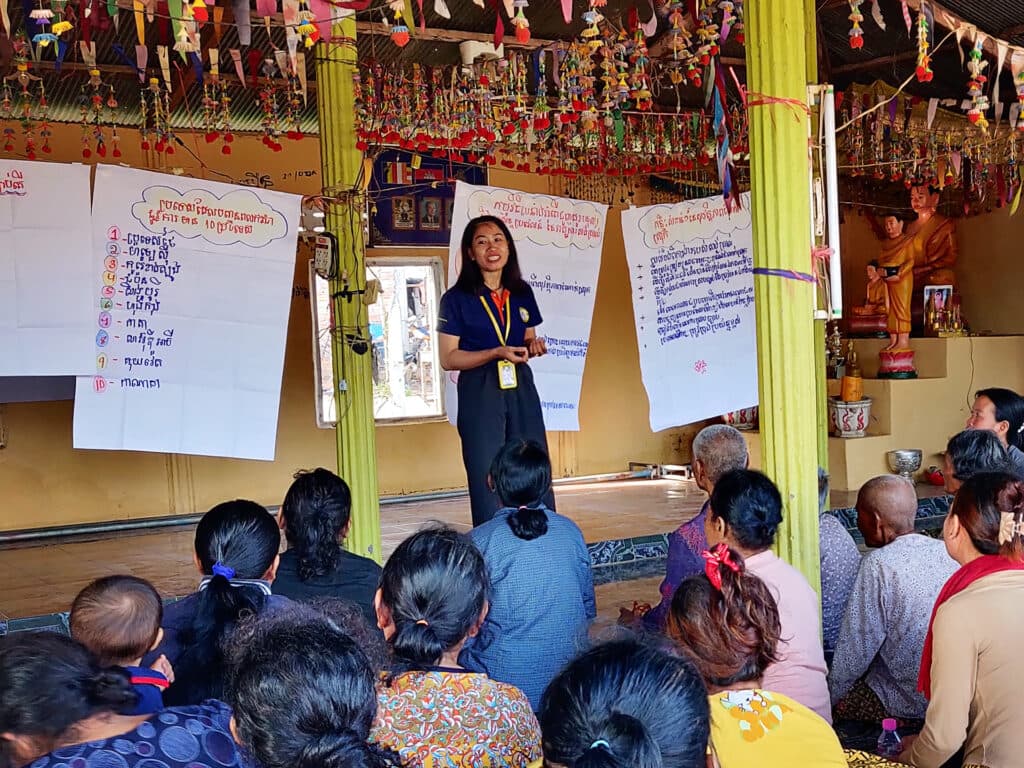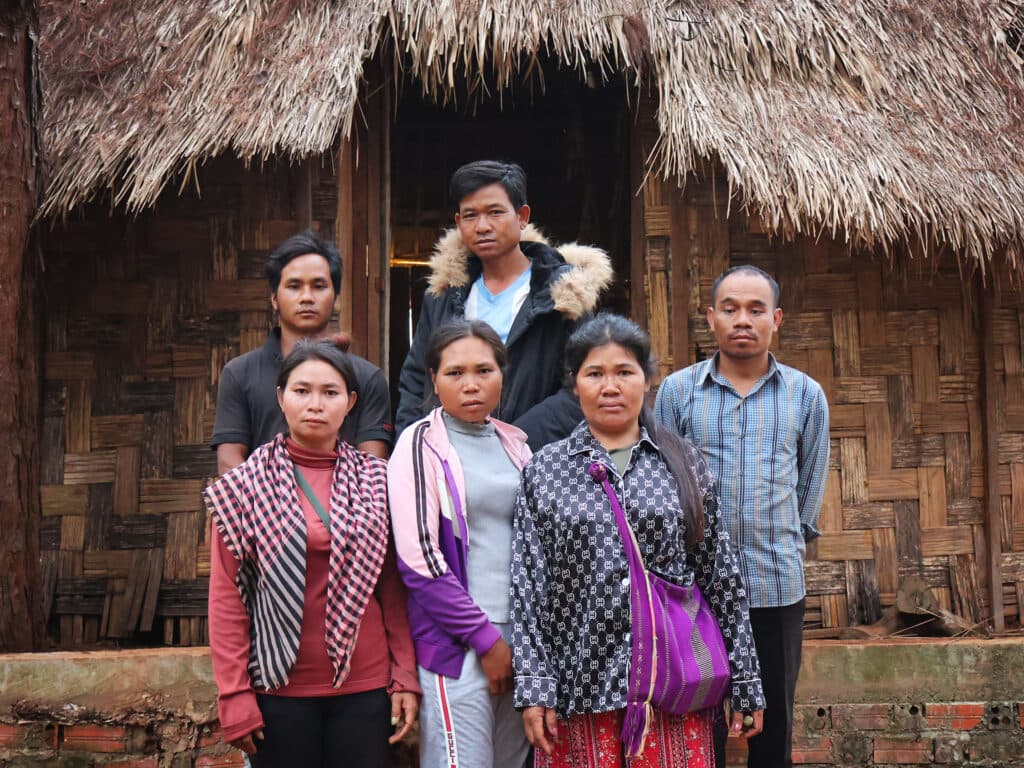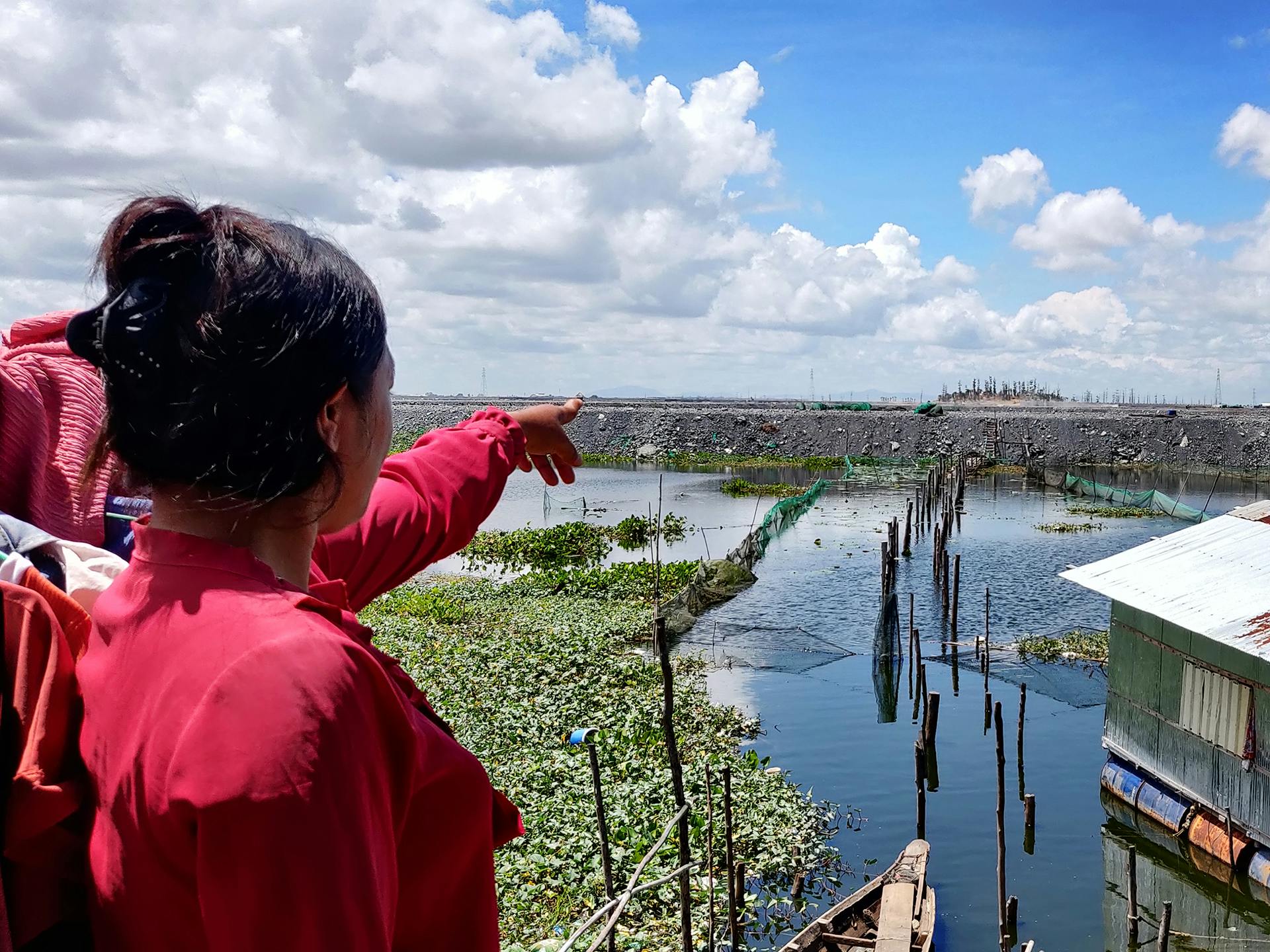
From Fishing Nets to Fighting Rights in Samrong Tbong
Against the peaceful backdrop of Samrong Tbong, an urban village in Cambodia, a struggle for land rights unfolds as the community faces eviction.
Samrong Tbong village, located about fifteen kilometers north of Phnom Penh, saw many Cambodian people migrating from other parts of the country to settle in their homes between 1994 and 1998. Most villagers earned their living from fishing due to the village’s proximity to a large open lake called Boeung Tamok.
“I used to live peacefully, earning from fishing which generated a daily income between 150,000 Riel to 200,000 Riel (approximately between $30-$50). The local authorities, namely the village chief and commune chief, recognized and respected my settlement“, said Srey Sot, a community leader of an urban poor community in Phnom Penh city.
“Yet, my good life drastically faded away since 2019 when the Royal Government of Cambodia granted this lake to various government ministries and private individuals for unknown development projects, and they began filling the lake with soil”, Srey Sot continued, her voice filled with a mix of sadness and frustration.
The fishing grounds, once bustling with life, were no more, and all villagers completely lost their livelihood.
Facing Eviction Threats in Samrong Tbong
The community is facing forced eviction or relocation due to the infilling of the lake by individuals and state institutions. The district authority has yet to recognize the community’s legitimacy, even though the families have been living on the land for decades. The authorities have informed the community that they are residing on the lake, recognized as state public property, so they are ineligible for land titles.
Given the reasons above, the community members have faced difficulties in building new houses or even renovating their existing ones. The authorities always come to stop the community from conducting construction activities and seize their construction material. In addition, the community members lack any legal/official documents to prove their possessions such as land titles, certificates of occupation, residential books, and family books.
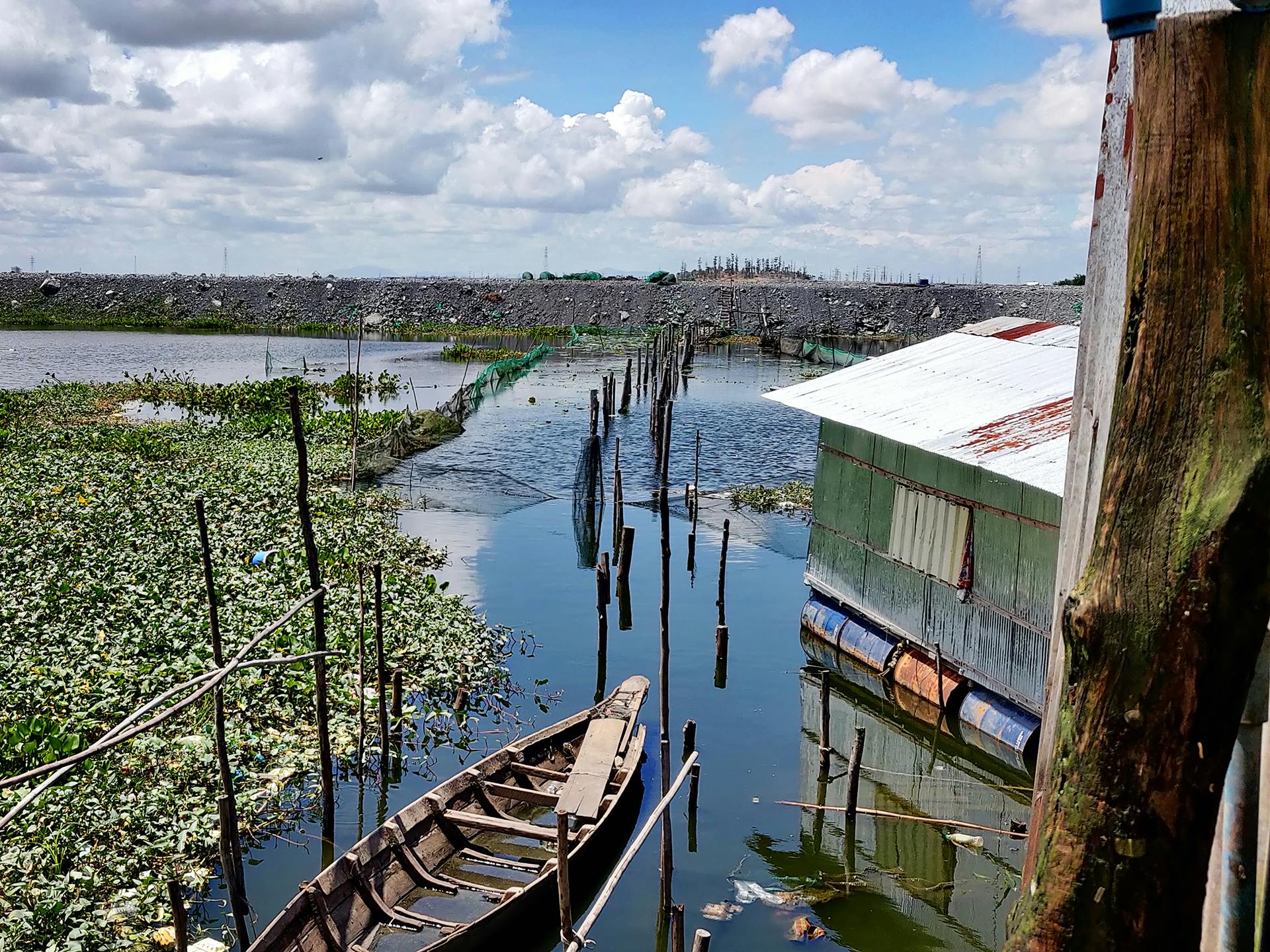
Due to the prolonged land conflict, many community members have faced financial hardship and some of them decided to accept unfavorable compensation and left the village. The remaining 75 households consisting of 200 families continue to demand the right to stay on their current land. They advocate for a development approach that allows them to remain in their homes, insisting that any government development on the disputed land should include provisions for their continued residence and support.
Community Rights Strengthened through Partnership
Amidst these challenges, Sahmakum Teang Tnaut (STT), a local organization in partnership with Diakonia, stepped in. STT held several meetings with community members and provided them with Legal Advice Sheets and Community Maps. They also conducted training sessions on the Land Law 2001, human rights principles, and ICT/social media usage, empowering the community to advocate for their rights and effectively communicate with relevant authorities.
As a result of participating in the above-mentioned activities, the community members gained knowledge on land rights and advocacy skills and increased their confidence. Srey Sot shared her personal experience: “I am more confident than before in talking and negotiating with authority. I am not scared of their intimidation because I am now equipped with skills and knowledge in land law and housing rights.”
Pyanet Lim, a Program Officer at Diakonia, reflected on the impact of his work: “I've seen the remarkable change that comes from empowering communities with knowledge and legal awareness. Our partnership with STT in Samrong Tbong is a good example of how collaborative efforts can significantly uplift communities facing challenging circumstances.”
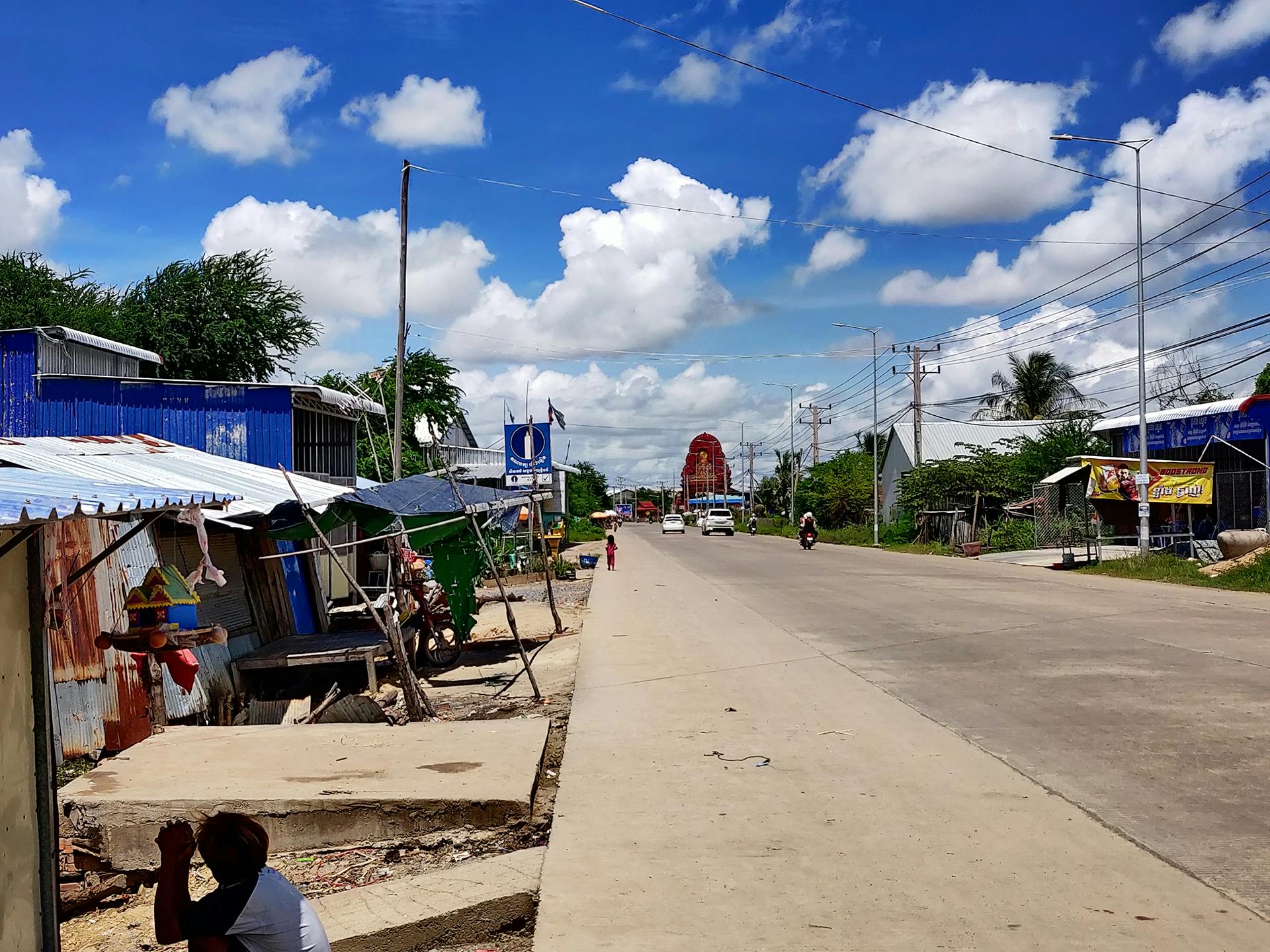
Echoing this sentiment, Srey Sot added, “Despite legal challenges, my family and I will not give up my effort and will continue to collaborate with my community members to fight for our land rights. We won’t leave our homes and are hopeful for a positive outcome.”
As the sun sets on Samrong Tbong, the determination of people like Srey Sot and her community members shine a light on a larger story of the challenges faced by many others across Cambodia in their quest for land rights and dignity. In even the smallest of communities, there lies the strength and courage, enough to drive meaningful change and make a resounding call for justice.
About Sahmakum Teang Tnaut
Sahmakum Teang Tnaut (STT) is a Cambodian non-governmental organization dedicated to working with urban poor communities in Phnom Penh. The organization's aim is to support these communities in securing adequate housing, achieving improved living conditions, and attaining greater prosperity. STT's initiatives focus on empowering residents through legal aid, advocacy for housing rights, and promoting sustainable urban development to ensure long-term stability and growth for these vulnerable groups. The organization has been working with Diakonia since 2013.

